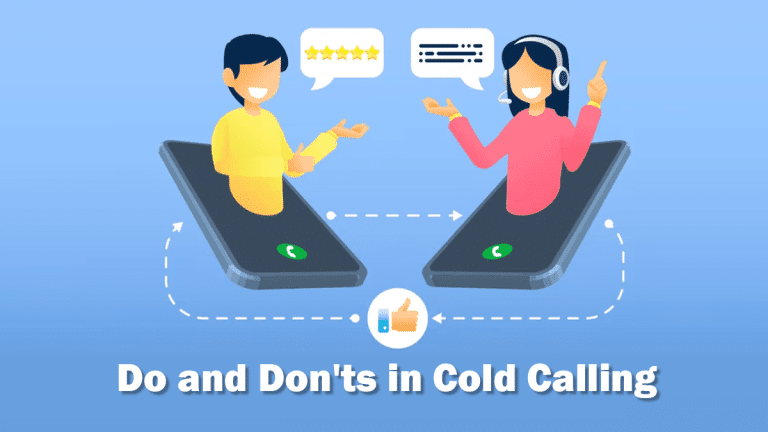How to Reach Out to Business Owners? Ultimate Guide [2024]

Establishing connections with business owners is a crucial skill to have. It has the potential to open doors to new opportunities, collaborations, and partnerships. Whether you are a budding entrepreneur, a sales professional, or a marketer, knowing how to reach out to business owners can be a game-changer for your career.
In this ultimate guide for 2024, we’ll explore the significance of using email as the primary medium of communication to ensure more deals and opportunities while also delving into strategies for how to get in contact with business owners.
Why Is Email the Best Medium to Reach Decision-makers?
- We live in a world that is dominated by digital communication and social media. Even in this generation, email remains the most effective and professional way to reach decision-makers, including business owners.
- Emails provide a formal and structured platform for conveying your message, allowing you to articulate your thoughts. Additionally, emails offer the advantage of being less intrusive compared to phone calls.
- This helps as it provides the recipient with the flexibility to respond to emails at their convenience. Moreover, emails create a written record of communication, making it easier for both parties to reference previous conversations. This makes it the ideal choice for most professional conversations.
Why Do You Need to Find Business Owner’s Email Addresses?
- Finding a business owner’s email address will help in establishing direct communication channels. It allows you to bypass gatekeepers and directly connect with the decision-makers, ensuring that your message reaches the right hands.
- With the inundation of communication across various platforms, having a direct email address enables you to stand out from the noise and increases the likelihood of your message being seen and considered. Moreover, emails provide a formal setting, conveying professionalism and respect for the business owner’s time.
How To Get In Contact With Business Owners
Here are some of the best ways to reach the right people at the right time:

- Company Websites and About Pages: Start by visiting the official websites of the companies you want to connect with. Frequently, businesses provide contact information, including email addresses, on their “About” or “Contact” pages. This is often the most straightforward and reliable method.
- LinkedIn: Utilize professional networking platforms like LinkedIn to identify and connect with business owners. Many business professionals maintain updated profiles on LinkedIn, making it easier to find their contact details. Additionally, LinkedIn InMail allows you to send messages directly to individuals you are not connected with.
- Business Directories: Explore online business directories and databases that categorize companies based on industry, location, and size. These directories often include contact information for key personnel, including business owners.
- Social Media Platforms: While not as formal as email, social media platforms can still be valuable for reaching out to business owners. Twitter, for instance, allows direct messaging, Instagram has a new enquiries option for professional accounts, and Facebook often has business pages where you can send messages.
- Networking Events and Conferences: Attend industry-specific events and conferences where business owners may be present. These gatherings provide an excellent opportunity to establish connections in person and obtain contact information for follow-up communication.
How to Begin Prospecting Small Business Owners
Approaching small business owners requires a tailored and personalized approach. Such business owners often wear multiple hats, making their time precious. Here are some strategies to effectively reach out to them:

- Craft a Compelling Subject Line: Capture their attention with a concise and intriguing subject line that highlights the value or benefit they will gain from reading your email.
- Personalization Matters: Begin your email by addressing the business owner by name. Reference specific details about their company or achievements to demonstrate that your outreach is not generic but tailored to their unique situation.
- Clearly State Your Purpose: Be transparent about the purpose of your email. Clearly articulate why you are reaching out, what you hope to achieve, and how it aligns with their business goals.
- Offer Value: Provide a clear value proposition that goes beyond just making a sale. Highlight how your product, service, or collaboration can benefit their business and contribute to their success.
- Respect Their Time: Acknowledge the busy schedule of small business owners and express your commitment to a concise and efficient communication process. Clearly outline the next steps or actions you propose.
How Small Business Owners Can Support Each Other
Building a community of support among small business owners can foster collaboration, shared resources, and mutual growth. Here are some ways in which small business owners can support each other:

- Networking Events: Attend local or industry-specific networking events to meet and connect with other small business owners. Share experiences, challenges, and insights to build a sense of camaraderie.
- Online Forums and Groups: Join online forums and social media groups dedicated to small business owners. Participate in discussions, share knowledge, and seek advice from fellow entrepreneurs.
- Collaborative Projects: Explore opportunities for collaboration with other small businesses. Joint ventures, partnerships, or collaborative projects can enhance both businesses’ capabilities and reach.
- Mentorship Programs: Establish mentorship programs within the small business community. Experienced business owners can provide guidance and support to those just starting or facing specific challenges.
- Resource Sharing: Share resources such as tools, contacts, or best practices with other small business owners. This reciprocal exchange can contribute to the overall success of the community.
How to Find Company Contact Information
- Finding company contact information is important if you are trying to reach out to business owners. Start with the company’s official website. Look for dedicated contact pages, “About Us” sections, or directories that may list key personnel and their contact details.
- Next, explore the company’s social media profiles, especially LinkedIn. Many businesses provide contact information on their LinkedIn pages, making it a valuable resource. It is also a good idea to use online business directories and databases that aggregate company information. These directories often include contact details for key individuals, including business owners.
- If you are comfortable with offline events, attend relevant networking events or conferences. These are places where you may have the opportunity to connect with company representatives and obtain contact information.
Online Business Prospecting Tools
- Online business prospecting tools are essential for any modern business looking to generate leads and grow their customer base. These tools are designed to help businesses identify and connect with potential customers through various channels such as social media, email, and web analytics.
- By using these tools, businesses can gather valuable data about their target audience, segment their leads, and create personalized and targeted marketing campaigns. Additionally, online prospecting tools can also streamline the lead generation process by automating tasks such as lead scoring, lead nurturing, and follow-up communications.
- Some popular examples of online business prospecting tools include customer relationship management (CRM) software, email marketing platforms, and social media monitoring tools.
- Investing in these tools can greatly improve a business’s ability to identify and engage with potential customers, ultimately leading to increased sales and revenue. In today’s competitive landscape, utilizing online business prospecting tools is crucial for staying ahead of the curve and reaching new customers.



![Partnership Emails: Best Practices & [With Email Templates]](https://targetaccesshub.com/wp-content/uploads/2024/01/Partnership-Emails-Best-Practices-With-Email-Templates-768x384.webp)


